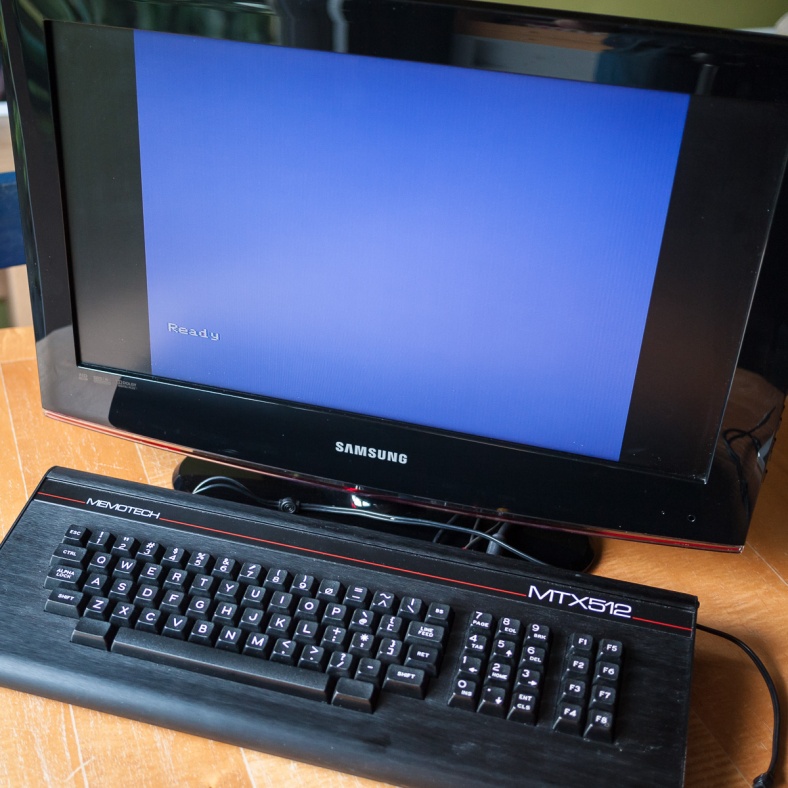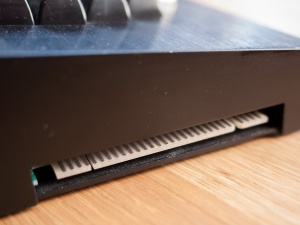I’ve powered up my non-functioning MTX 512 using a known working power brick and back plate. I’m still not seeing a signal from the composite output and am getting a blank screen and no sound from the RF output.
The unit is blowing fuses and it seems likely there is a short somewhere. The ever helpful folks over at the Memorum forums have been eager to help and have been providing some excellent guidance. It’s clear the previous owner has also made many attempts to revive the Memotech, there are signs all over the board of attempted repairs. As yet I have not been able to track down where the short is.
I do have a working MTX 512 as well and with it the operator’s manual. It’s a really interesting read and I’m intrigued by the relative ease with which the machine’s graphical abilities can be accessed.
I typed in a short demo listing which resulted in a spider shaped sprite moving at random around the screen leaving a web trail behind it. My son saw this and immediately requested that I create a game where a fly would become trapped in the web and eaten by the spider. I then found myself drawing out an 8×8 grid and creating a sprite. That really brought back some memories. If time allows I may attempt such a game.
Unlike the Commodore 64 with its proprietary cassette interface, the MTX 512 has, like the Sinclair Spectrum, simple MIC in and Ear out jacks. Over at MTXWorld there’s an excellent selection of MTX games in WAV sound format. It’s therefore pretty straightforward to download these, play them via your modern computer’s sound card and load them into the MTX. All that’s needed is a little bit of fiddling with levels.
It occurred to me it would be fun to try to put a catalogue of games on my phone and load them from there. I dragged the WAV files into iTunes and converted them to AAC before dragging them onto my phone. I connected the phone up to the MTX with a suitable audio cable, typed LOAD”” and played the WAV file, in this case a Pac-Man clone. Nothing happened initially but once I’d turned up the volume to full the game loaded.
















